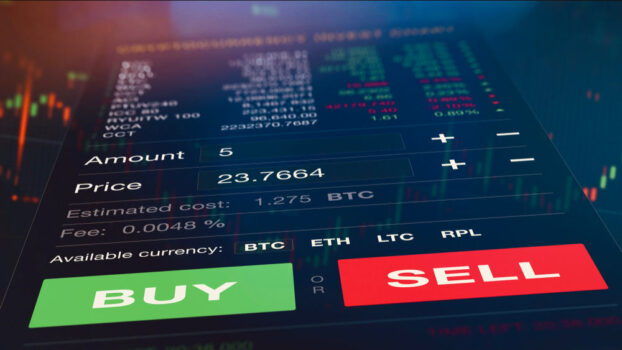Updated forex trading guide and strategies you should know
If you are new to the forex world, or you made a few mistakes with your initial trades, we can help you get off on the right foot. Rather than making any more missteps, you can ensure each trade is impactful, and that you are profiting at the end of each day.
Below is a forex trading guide for beginners, along with updated strategies for trading currencies for 2022.
Understanding the Basics
Before you can go any further, you must have a basic understanding of the forex market and how it functions. Forex is short for foreign exchange and refers to the buying and selling of currencies on the open market.
When people trade forex, they are doing so in currency pairs. For instance, you may see symbols such as GBP:USD or USD:EUR when you open a forex website or log in to your newly created account. Such symbols signify the two currencies being traded, such as the Great British Pound and U.S. Dollar.
The first currency is the one you are buying, while the second currency is the one you are selling. For instance, GBP:USD indicates a trade where you are selling Dollars to buy Pounds.
Most forex traders prefer to invest in the major currency pairs, which involve currencies like the Dollar, Pound, Euro, Japanese Yen, and Swiss Franc. While you can trade other currency pairs, these are the pairs with the most significant volume, which makes it easier to quickly complete trades any time the market is open.
Practice Your Skills
Forex traders who put money in their new accounts and start trading instantly are making a mistake. Unless you have previous trading or finance experience, you should create an account on a platform that allows you to make dummy trades.
That means you are not using real money, but you are putting in orders for trades as if you were. Such a method allows you to see how your trades would perform if they had involved real money. You can initiate a USD:EUR trade, assess the value of the two currencies a few hours later and see whether you would profit if you closed your position.
Using a dummy platform also allows you to understand other forex tools, such as margin. You can also see how hedging can help you to avoid losses when the market takes an unexpected turn.
Become a Swing Trader
A misconception exists that most forex traders make money through day trades, which means they are opening and closing a position within a few hours. That is not the case, as the majority of forex traders benefit from a swing trading strategy.
The concept behind swing trading is that you can keep your position open for several days or weeks, if necessary. Rather than basing decisions on minor market movements, which happen every hour trading is open, you will base your buying and selling decisions on world events.
When there is a major event, you may assess the market and then take up a position. Then you hold onto that position until there is another event that results in the relevant currencies rising or dropping in value in a way that is beneficial to your position. You can now close out your position and take up a new one.
Take Additional Forex Courses
There is no harm in trying to learn more about the forex market and trading. Even if you are seeing profits with your initial trades, you can always learn more about this world.
As you watch more videos, read articles, and keep up to date on news that impacts foreign currencies, you will be a wiser and sharper trader. Eventually, you can predict how currencies will trend when significant news events occur, without even needing to check your forex app or website. Think of trading forex as an unwritten agreement that you must never stop learning. There are always new strategies and patterns to understand and implement. Never think that you have it all figured out.
Trade Slowly and Cautiously
If there is one piece of advice that every beginner forex trader should receive, it is to remain patient. There is a temptation among new traders to make rash and decisive moves with their trades, which can sometimes lead to unforeseen consequences.
Rather than putting all your money on a few trades, or overusing margin to trade greater sums than are in your account, remain cautious. Make smaller trades for a few months, get the hang of forex, and then advance your strategies to the next level.
By taking it slowly and playing the long game, you could emerge with greater profits in the next few years.























